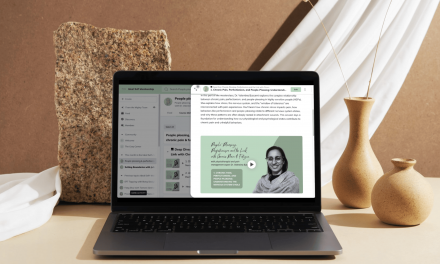Estimated reading time: 6 minutes
Curve‑balls are funny things: they leave the pitcher’s hand looking harmless and then, mid‑air, snap in a direction you never saw coming. Over the past three decades I’ve ducked plenty: collective ones every millennial will recognise (recessions, pandemics, tech upheavals) and private ones that rearranged my heart. Some knocked the wind out of me; others rerouted my entire career. Yet friends still ask, “How do you stay so upbeat?” This article is my answer. Below I unpack the five practices that have kept my inner spark alive no matter how wild the pitch. They aren’t glossy self‑help hacks; they’re road‑tested rituals I reach for the moment the sky goes sideways. If you’re standing in the batter’s box right now, clutching the bat and bracing for the next twist, I hope these pages feel like a coach’s hand on your shoulder, reminding you that you can, and will, connect.
Here’s What We’ll Cover on Life’s Curve-Balls:
A millennial masterclass in curve‑balls
I turn 33 this year, and when I look back it feels as if the universe has been pitching fastballs at my head since primary school. Recessions, a housing crunch, a global pandemic, AI reshaping my profession: pick a headline, we’ve worn it like a badge of honour. And that’s only the collective stuff. Privately I’ve weathered traumatic break‑ups and family storms that could have flattened my optimism for good.
Yet friends still describe me as “the positive one,” the girl who somehow shows up laughing even when life is howling. That isn’t naïveté; it’s a muscle I’ve had to train. Whenever another shock wave hits, I remind myself: curve‑balls aren’t proof that life is against me. They’re strange invitations to practise the handful of rituals that keep me steady. What follows isn’t theory pulled from a self‑help shelf; it’s the exact toolkit I grab when the sky falls. The habits that have walked me back to the light every single time.
Gratitude: my torch in the blackout
The first time heartbreak folded me in half, my mum appeared with three wise words. “Find the joy,” she warmly encouraged me. I rolled my eyes: then, gratitude journals felt like toxic positivity on paper. However, I was drowning, so I wrote three things: the scent of rain on pavement, the way coffee steam curls, the friend who reached out to me regularly. For five minutes my chest loosened, and that tiny crack of light was enough to prove the exercise worked. Since then gratitude has become non‑negotiable.
When a fresh curve‑ball arrives I tighten my grip on that notebook as if it were a flotation device, listing micro‑moments until my nervous system remembers the world isn’t only made of pain. I’m not bypassing the dark, I still cry, rant, process, but gratitude drags me far enough up the beach that I can breathe while I do the deeper healing. No matter how brutal a day feels, there is always a bird call, a meme, a sliver of moonlight worth naming. Writing it down is me voting for hope.
Sunlight & sidewalk epiphanies
The next lifeline when life throws you curve-balls costs nothing: step outside. As a highly sensitive person my senses are dialled to eleven, which can be torture indoors but a super‑power in nature. The moment I leash the dog and feel sun on my cheeks, the world starts handing me love notes. Grass blades glitter after rain; cloud mouths open into heart shapes; a magpie’s riff feels like a private concert. Those details are always there: we just forget to look when trouble hijacks our thoughts.
Moving my body under the sky yanks me out of repetitive mental loops and plants me back in the present, where solutions eventually surface. Some curve‑balls even solve themselves mid‑stride: a job worry untangles somewhere between the third and fourth kilometre, or the sound of leaves reminds me I’m tiny in the best possible way. If you can’t leave the city, find one stubborn patch of sunlight on a balcony and breathe there for ten minutes. The planet is very good at whispering, “You’re still alive, and that’s something.”
Borrowed courage & chosen voices
When my own optimism flickers, I borrow someone else’s. I phone the friends who have wrestled grief, debt, illness and lived to send memes about it. I don’t ask them to fix me; I simply let their survival stories recalibrate my fear. Sometimes I play a podcast episode from a creator who has walked the same path, or reread a paragraph that once yanked me out of despair. Curating that circle is crucial: I choose people who acknowledge pain yet steer back to possibility, never the ones who marinate in doom. Their sentences become temporary scaffolding until I can stand on my own again. Asking for perspective isn’t weakness; it’s community alchemy: turning shared hardship into collective strength. If no one in your current orbit fits, widen the search: memoirs, interviews, historical diaries. Let their resilience prove that curve-balls are survivable, and sometimes even unmistakable pivot points toward better chapters.
Spiritual lens: transforming curve-balls into homework
The final practice is the most “woo,” yet it’s the reason I now meet chaos with a strange thrill: spirituality reframes every blow as coursework for my soul. Through meditation, energy work, and long talks with equally curious friends, I’ve come to see each crisis as a customised syllabus: money fears expose ancestral scarcity stories; career upheaval forces latent talents to surface. That doesn’t erase discomfort, but it adds meaning, and meaning is rocket fuel. When the next curve‑ball arcs toward me I catch myself thinking, “Oh, a new module, wonder what gift is hidden in this lesson?” That curiosity keeps despair from cementing. It also anchors me in the belief that challenges are temporary bridges, not final destinations.
If spirituality isn’t your flavour, call it growth mindset or psychological reframing; the label matters less than the posture. What counts is meeting adversity with the question, “What is this trying to teach me?”, then staying open long enough to hear the answer. Because on the other side of every curve‑ball I’ve faced so far, I’ve found a sturdier, clearer, more compassionate version of myself… and a fresh page in that gratitude notebook, waiting to be filled.
Is Life Throwing You Curve-Balls?
If you’re still reading, chances are life is winding up for another pitch. Remember: gratitude can be your flashlight, sunlight your reset button, wise voices your borrowed armour, and a spiritual lens your secret playbook. None of us can control the direction of the curve-balls, but we can choose how we swing.
While you’re here, please make sure to check out the HiSensitives Membership: our safe, soulful corner of the internet where we share expert tools, worksheets, and weekly meditations that turn theory into lived resilience. Join us and keep stacking practices that let you meet every curve‑ball with grounded confidence and a quietly stubborn grin.






